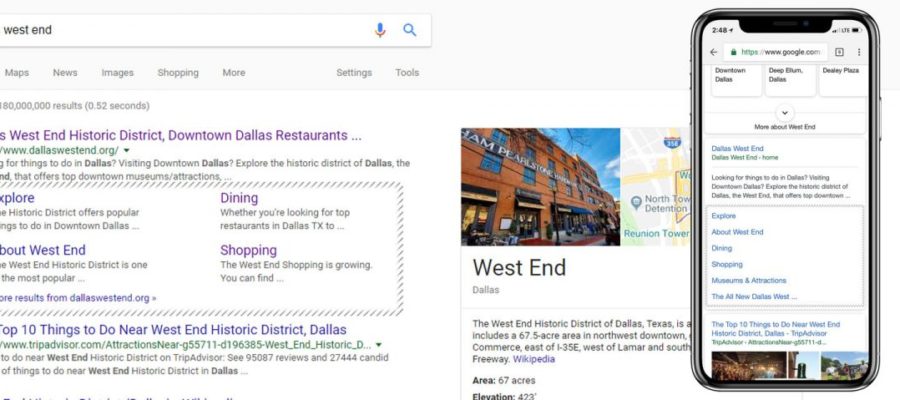What is Schema and How Should You Use it?

If you’re a business owner with an online presence or manage a website for a company, you may have heard of schema. Digital marketing agencies recommend every site use schema, but what exactly is schema?
Schema is a type of structured data used by machines to communicate specific bits of data. Seems pretty vague right? Let’s break this down into how it relates to SEO and search results in Google.
SEOs use structured data to communicate important information about the website to search engines.
You can communicate all kinds of information, including:
- Business name
- Phone number
- Website
- Address
- Type of business
- Links to your social profiles
- …and much more!
Why do I Need Schema?
Google’s goal is to deliver the most relevant searches for users. So, if you’re managing a website for a dentist’s office, you don’t want to show up in the search results for an optometrist. While they’re both medical practices, there’s a clear distinction between the two businesses. You can use structured data to tell Google that you’re specifically a dentist’s office.
Google can typically figure out what type of business you are based on the content on your site, and whether or not you’ve optimized your citations. However, schema can help Google categorize your site more effectively. In this case, think of it as just another tool in your SEO tool belt.
Where do I See Schema?
The reason most SEO professionals use structured data is to enhance how their sites appear in the search results. For example, if you manage a food recipe website, you can use it to markup your content with recipe-specific structured data.
Let’s go to Google and search for “chicken recipes.”
As you can see in the SERP (search engine results page), cafedelites.com earned what’s called a featured snippet. Google defines a featured snippet as a block of content on the top of the results that “includes a summary of the answer, extracted from a webpage, plus a link to the page, the page title, and URL.”
Featured snippets have proven to generate a higher click-through rate (CTR) than standard results. If you look below the featured snippet, the first few results feature an image. The images are showing up because those sites use the recipe schema with a featured image. When it comes to content like recipes, images are crucial for generating engagement.
What Type of Schema Should I Use?
There are many different syntaxes for structured data, each with its own specific capabilities.
- JSON-LD (recommend by most search engines)
- RDFa
- Microdata
JSON-LD
Many developers and SEOs will tell you that there is no best syntax. However, we firmly believe that JSON-LD is the most efficient. It is also the preferred syntax from Google and Bing.
The reason we use JSON-LD is that it contains all of the structured data in one single script, which is placed in the header of the website. By using just one script and placing it in the header, your structured data will generate across the entire site.
This method takes far less time to implement than the more traditional schema syntaxes.
RDFa and Microdata
The differences between RDFa and Microdata are very small. Both types of structured data involve wrapping pieces of content on the site with tags. This process is very tedious and time-consuming.
Schema Generators vs. Plugins vs. Writing from Scratch
Many beginners use online generators to write structured data. This is a great tool to learn schema and to save time. However, oftentimes generators will display errors and warnings. This is because schema is an evolving language technical, which is hard for web app developers to keep up with.
Most of the schema generators you see online are legacy applications and are therefore outdated. This is why most business owners and web managers prefer to hire a professional SEO company to write custom schema.
Another option is to pay for a schema plugin. Oftentimes, this is a very easy option that makes schema easy. However, the biggest downside to plugins is that they are missing valuable featured snippet opportunities. Schema plugins often only include the bare minimum information. Unlike structured data generators, plugins are updated much more frequently. However, these updates are often just bug fixes and rarely include adding new features.
Why Hire an SEO Company to Write Schema?
Again, schema markup is a developing language. Schema.org is constantly adding new types of data, and Google is accepting more and more types of data every year.
SEO companies stay up to date with the latest structured data updates. Dallas SEO Dogs writes all of its schemas from scratch and tailors the information specific to its clients’ businesses and features. We use as much relevant data as possible and cut out unnecessary code.
Looking to add structured data to your site? Contact us today to learn how we can earn you featured snippets in Google!
